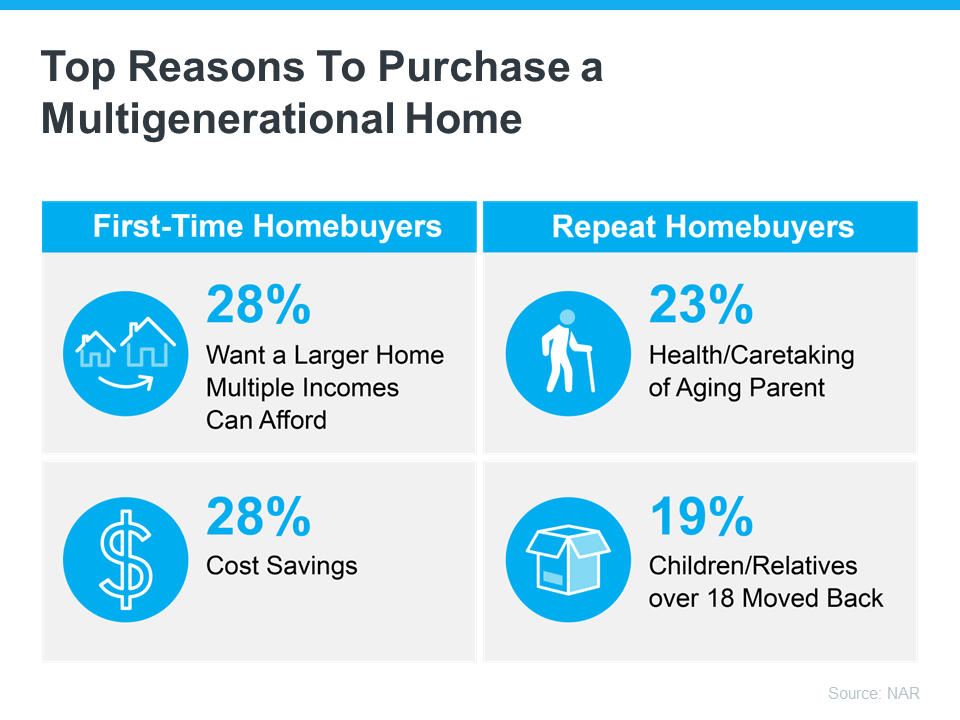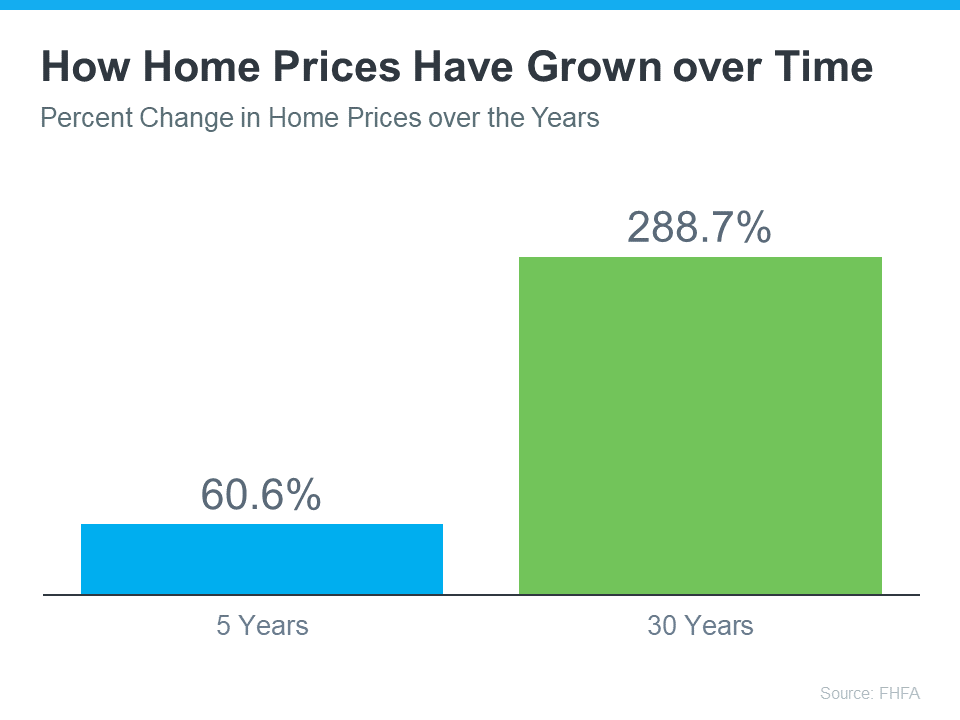
Coping with Holiday Stress as a Senior or Caregiver

Are you a caregiver juggling the responsibilities of caring for your loved one at home, while also trying to navigate the stress and pressures of the holiday season? As the holidays approach, it’s important for caregivers to prioritize their own well-being and find effective strategies to cope with the added stress that comes with this time of year. In this article, we will explore some valuable tips and techniques to help you manage and reduce holiday stress, ensuring that you can still find joy and relaxation amid the caregiver role.
Recognizing The Signs Of Stress: Understanding The Impact On Caregivers
As a caregiver, the holiday season can bring about an additional layer of stress and overwhelm. Balancing the responsibilities of caregiving with the demands of the festive season can feel like an uphill battle. It is crucial, however, to recognize the signs of stress and prioritize self-care during this time.
1. Emotional Signs: Caregivers may find themselves experiencing a range of emotions such as irritability, anger, sadness, or feeling overwhelmed. It is essential to acknowledge and validate these emotions as a natural response to the ongoing demands of caregiving. By being aware of your emotional state, you can take steps to manage and address these feelings effectively.
2. Physical Signs: Stress can manifest itself in various physical ways, such as headaches, muscle tension, difficulty sleeping, or changes in appetite. Paying attention to these physical signs can help you identify when stress is taking a toll on your well-being. Taking breaks, practicing relaxation techniques, and maintaining a healthy lifestyle can help manage these physical effects.
3. Cognitive Signs: When stress becomes overwhelming, caregivers may experience cognitive difficulties such as forgetfulness, lack of concentration, or difficulty making decisions. Recognizing these signs can help you understand that it is not a personal failing but a response to the stress you are enduring. Engaging in activities that stimulate your mind, setting realistic goals, and reaching out for support can help alleviate cognitive challenges.
4. Behavioral Signs: Stress can often lead to changes in behavior. Caregivers may find themselves withdrawing from social activities, neglecting personal needs, or developing unhealthy coping mechanisms such as excessive alcohol consumption or overeating. Being aware of these behavioral patterns can help you make conscious choices to prioritize self-care and seek healthier coping strategies.
Understanding the impact of stress on caregivers is crucial for developing effective coping mechanisms. When stress goes unmanaged, it can lead to burnout, compromised physical health, and strained relationships. To ensure your well-being during the holiday season, consider implementing the following tips:
1. Practice Self-Care: Carve out time for yourself, even if it’s just a few minutes each day. Engage in activities that bring you joy and help you relax, whether it’s reading, taking a bath, or going for a walk. Prioritizing self-care is not selfish; it is essential for maintaining your own well-being.
2. Set Realistic Expectations: During the holidays, it’s easy to get caught up in the idea of creating a perfect celebration. However, it’s essential to set realistic expectations for yourself and your loved ones. Recognize that it’s okay to ask for help, delegate tasks, or modify traditions to alleviate some of the pressures you may be feeling.
3. Seek Support: Reach out to friends, family members, or support groups who understand the unique challenges of caregiving. Sharing your thoughts and feelings with others who can offer a listening ear or practical advice can be invaluable in reducing stress and finding new perspectives.
4. Develop Coping Strategies: Identify healthy coping mechanisms that work for you. This could include techniques such as deep breathing exercises, mindfulness meditation, journaling, or engaging in hobbies that bring you pleasure. Experiment with various strategies until you find what helps you manage stress most effectively.
5. Communicate Openly: Express your needs and concerns to your loved ones. They may be unaware of the extent of your caregiving responsibilities or the toll it is taking on your well-being. By sharing your experience, you can foster understanding, compassion, and support from those around you.
Remember, as a caregiver, your well-being is as important as the care you provide. By recognizing and acknowledging the signs of stress, understanding its impact, and implementing effective coping strategies, you can navigate the holiday season with greater ease, finding moments of joy and rest amidst your caregiving responsibilities.
Establishing Boundaries And Seeking Support: Building A Strong Caregiver Network
The holiday season can be a joyful time filled with love, laughter, and togetherness. However, for caregivers at home, it can also be an overwhelming and stressful period. Balancing the demands of caregiving with the holiday expectations can leave you feeling exhausted and drained. In order to navigate this challenging time more effectively and reduce your stress levels, it is crucial to establish boundaries and seek support. Building a strong caregiver network is essential for your well-being and the well-being of your loved one.
Establishing boundaries is an essential step in managing stress as a caregiver during the holidays. It is important to recognize your limitations and prioritize your own needs. Learn to say no when necessary and only commit to activities and responsibilities that you can realistically handle. Setting clear boundaries with family and friends can help to alleviate the pressure of expectations and allow you to focus on what truly matters.
Communicate openly with your loved ones about your caregiving responsibilities and the challenges you may face during the holidays. Explain your limitations and ask for help when needed. Often, friends and family members are more than willing to lend a helping hand, but they are unaware of the specific ways in which they can assist. By having open and honest conversations, you can outline the support you need, whether it be someone to help with household chores, accompany your loved one during appointments, or simply provide emotional support.
In addition to establishing boundaries, seeking support from a strong caregiver network is vital. Caregiving can be an isolating experience, especially during the holiday season when others may be focused on their own celebrations. Reach out to support groups, either in person or online, where you can connect with individuals who are going through similar experiences. These groups can provide a space for sharing stories, advice, and insights, helping you feel less alone in your caregiving journey.
Don’t be afraid to seek professional help as well. Therapists or counselors specializing in caregiver support can offer guidance, coping strategies, and a safe space to vent your frustrations. They can help you process your emotions, manage stress, and navigate the unique challenges that arise during the holidays.
In addition to professional support, consider reaching out to local organizations or community resources that specifically cater to caregivers. These organizations often offer respite care, which allows you to take a break and recharge during the holiday season. They may also provide educational programs, workshops, or support groups focused on caregiver well-being.
Finally, don’t underestimate the power of self-care and taking time for yourself. As a caregiver, it is easy to neglect your own needs and prioritize the needs of your loved one. However, self-care is crucial for maintaining your own mental and physical health. Take breaks when needed, engage in activities that bring you joy and relaxation, and make self-care a priority during the holidays. It is not selfish to put yourself first occasionally – it is necessary for your own well-being and for providing the best care possible to your loved one.
In conclusion, coping with holiday stress as a caregiver at home requires establishing boundaries and seeking support. By setting clear boundaries, communicating your needs, and prioritizing self-care, you can navigate the holiday season with greater ease and alleviate the stress that often accompanies caregiving responsibilities. Building a strong caregiver network, whether it be through support groups, professional help, or community resources, can provide you with the understanding, guidance, and emotional support that is essential during this challenging time. Remember, taking care of yourself is just as important as taking care of your loved one.
Prioritizing Self-Care: Strategies For Taking Care Of Yourself
The holiday season is often referred to as a time of joy and togetherness, but for caregivers, it can also bring about additional stress and responsibilities. While taking care of your loved ones is undoubtedly important, it is equally crucial to prioritize your own well-being. Self-care is not selfish; it is an essential part of maintaining your physical and mental health. Here are some strategies to help you take care of yourself during the holiday season and beyond:
1. Accept Help: As a caregiver, it’s common to feel like you need to do everything yourself. However, it’s essential to remember that you don’t have to carry the burden alone. Reach out to family members, friends, or support groups and ask for assistance. Involve others in caregiving tasks or delegate specific responsibilities. Accepting help not only lightens your load but also allows others to show their support.
2. Set Boundaries: Establishing clear boundaries is crucial for your mental well-being. Learn to say “no” when necessary and prioritize your own needs. Setting realistic expectations with others, such as limiting the number of commitments or visitors, can help reduce stress. This allows you to focus on what is genuinely important and avoid becoming overwhelmed.
3. Practice Self-Compassion: Being a caregiver is demanding, both physically and emotionally. Be kind to yourself and practice self-compassion. Understand that you are doing your best under challenging circumstances. Acknowledge your achievements, no matter how small they may seem. Treat yourself with the same empathy and understanding that you would offer to others.
4. Take Breaks: Make self-care a regular part of your routine by taking breaks whenever possible. Even short periods of rest can help rejuvenate your mind and body. This could involve engaging in activities you enjoy, such as reading, listening to music, or taking a walk. Schedule time for yourself each day to recharge and relax, and don’t feel guilty for doing so.
5. Prioritize Healthy Habits: When stress takes over, healthy habits are often neglected. However, maintaining a balanced lifestyle is crucial for your overall well-being. Focus on proper nutrition by consuming a well-rounded diet and avoiding excessive caffeine or sugary foods. Aim to get sufficient sleep and engage in regular physical activity to minimize stress levels. Taking care of your physical health can have a significant impact on your mental and emotional state.
6. Seek Emotional Support: Remember that it’s okay to ask for emotional support when needed. Connect with others who may be going through similar experiences or seek therapy or counseling to help you process your emotions. Sharing your feelings and concerns can provide relief, perspective, and a sense of connection.
7. Practice Stress-Reduction Techniques: Incorporate stress-reduction techniques into your daily routine. These could include deep breathing exercises, meditation, mindfulness, or engaging in hobbies that bring you joy. Find what works best for you and make it a priority to practice regularly. These techniques can help you manage stress in a healthy way and promote relaxation.
8. Stay Connected: Isolation can heighten feelings of stress and loneliness. Make an effort to stay connected with friends, family, and support groups. Reach out to loved ones regularly, whether through phone calls, video chats, or in-person meetings when possible. Sharing your experiences and connecting with others who understand your challenges can provide emotional support and a sense of community.
Remember, taking care of yourself is not a luxury but a necessity. Prioritizing self-care will not only benefit your own well-being but also enable you to provide better care for your loved ones. By implementing these strategies during the holiday season and throughout the year, you can navigate the challenges of caregiving with more ease and find moments of joy and rest amidst the stress.
Practical Tips To Manage Holiday Stress: Balancing Responsibilities And Enjoying The Season
The holiday season can be a time filled with joy and cheer, but for caregivers at home, it can also bring added stress and pressure. As a caregiver, you constantly juggle multiple responsibilities and your caregiving duties may leave you feeling overwhelmed during the holidays. However, with a few practical tips, you can manage and alleviate some of the stress and find ways to enjoy the season.
1. Prioritize and Delegate: Start by identifying your primary responsibilities and focus on those that are essential. Make a to-do list and determine which tasks can be delegated to others. This could involve asking family members or friends for help with holiday preparation or caregiving duties. Accepting help can lighten your workload and allow you to have more time to relax and enjoy the festivities. Remember, it’s okay to ask for assistance.
2. Set Realistic Expectations: It’s important to set realistic expectations for yourself and those around you. Acknowledge that you may not be able to do everything you used to or participate in every holiday activity. Reduce stress by being mindful of your limitations and focusing on what brings you the most joy. Simplify your plans and prioritize activities that align with your caregiving responsibilities and bring meaning to the season.
3. Take Care of Yourself: Self-care is crucial during this time of year, especially when you are a caregiver. It’s easy to neglect your own needs when caring for others, but remember that you can’t pour from an empty cup. Set aside time for yourself each day, even if it’s just a few minutes. Engage in activities that help you relax and rejuvenate, such as taking a walk, practicing deep breathing exercises, or indulging in a favorite hobby. Prioritizing self-care will help you maintain your physical and emotional well-being, making it easier to cope with stress.
4. Practice Mindfulness: The holiday season can be busy and overwhelming, but practicing mindfulness can help you stay present in the moment and reduce stress. Take a few minutes each day to practice mindfulness techniques, such as meditation or deep breathing exercises. By focusing on the present moment and letting go of worry about the past or future, you can embrace the joy and beauty of the holiday season.
5. Seek Support: Remember that you don’t have to navigate the challenges of caregiving and the holiday season alone. Reach out to support groups, online communities, or friends who may be going through similar experiences. Sharing your feelings and concerns with others who understand can provide comfort and valuable advice. Additionally, consider seeking professional help from a counselor or therapist who specializes in caregiver stress.
6. Connect with Others: The holiday season is often synonymous with socializing and spending time with loved ones. However, caregivers may find it difficult to engage in social activities due to their responsibilities. Look for opportunities to connect with others, even if it means adapting plans to fit your caregiving duties. Host smaller gatherings at home, join virtual celebrations, or find local support groups or communities where you can connect with other caregivers. Feeling connected and supported by others can help alleviate stress and bring a sense of belonging during this season.
7. Plan for Downtime: As a caregiver, it’s crucial to plan for downtime during the holiday season. Schedule regular breaks for yourself, even if it’s just for a short period of time each day. Use this time to relax, recharge, and engage in activities that bring you joy and peace. Remember, taking care of your own needs allows you to better care for others.
By implementing these practical tips, you can manage holiday stress as a caregiver at home. Remember to prioritize, set realistic expectations, take care of yourself, practice mindfulness, seek support, connect with others, and plan for downtime. By finding balance between your caregiving responsibilities and taking time for yourself, you can navigate the holiday season with more resilience and enjoyment.
Things you can do for seniors to help them reduce holiday stress
The holiday season can be a joyful and festive time, but it can also bring about additional stress for caregivers at home. As a caregiver, you already have a lot on your plate, and the added responsibilities of the holiday season can sometimes feel overwhelming. However, it’s important to remember that taking care of yourself and your loved ones’ needs is crucial during this time. One way to alleviate some of the stress is by implementing strategies to help seniors reduce holiday stress. Here are a few things you can do:
1. Simplify decorations and activities: The holiday season often comes with a flurry of decorations and activities. However, for seniors, too much visual and sensory stimulation can lead to anxiety and overwhelm. Instead, aim for a simplified and calming environment. Opt for a few cherished decorations and create activities that are suitable for their capabilities. Keeping things simple and meaningful will help reduce stress levels.
2. Maintain routines and structure: Seniors thrive on routine and structure, as it provides a sense of predictability and stability. During the holiday season, try to maintain their regular routines as much as possible. Keeping consistent meal times, medication schedules, and daily activities can help seniors feel more secure and less stressed.
3. Be mindful of dietary restrictions: Holiday festivities often revolve around food, but it’s important to be mindful of any dietary restrictions or health conditions that seniors may have. Ensure that there are options that cater to their needs, whether it’s modifying recipes to accommodate dietary restrictions or providing alternatives. By taking their dietary needs into account, you can help reduce stress related to food choices and potential health issues.
4. Encourage social connections: Loneliness and isolation can contribute to holiday stress for seniors. Encourage them to maintain social connections and participate in activities that allow them to engage with others. This could include attending community events, connecting with fellow seniors, or spending quality time with family and friends. Social interactions can boost their mood, reduce stress, and make the holiday season more enjoyable.
5. Create a peaceful and quiet space: With the busyness of the holiday season, it’s easy for seniors to feel overwhelmed by noise and crowds. Ensure that there is a quiet and peaceful space in your home where they can retreat if they need a break. Set up a cozy corner with comfortable seating, soft lighting, and calming elements like soothing music or nature sounds. Having this quiet refuge allows them to recharge and find solace when the holiday stress becomes too much.
6. Involve them in decision-making: Include seniors in the decision-making process when it comes to holiday planning. Give them a voice in selecting activities, decorations, and overall celebrations. By involving them, you empower them to participate actively and feel a sense of ownership in the holiday festivities, which can reduce stress and enhance their overall enjoyment.
7. Seek respite and support: As a caregiver, it’s crucial to take care of your own well-being too. Seek respite and support from other family members, friends, or professional caregivers. Allowing yourself some time to rest and recharge can help you better cope with holiday stress and be more present for your loved ones. Remember, you don’t have to do it all alone.
Remember, as a caregiver, you are doing an incredible job of taking care of your loved ones. By implementing these strategies to reduce holiday stress, you can create a more peaceful and enjoyable environment for both yourself and the seniors under your care.
Marty Gale
Buy or Sell with Marty Gale
"Its The Experience"
Principal Broker and Owner of Utah Realty™
Licensed Since 1986
CERTIFIED LUXURY HOME MARKETING SPECIALIST (CLHM)
PSA (Pricing Strategy Advisor)
General Contractor 2000 (in-active)
e-pro (advanced digital marketing) 2001
Certified Residential Specialist 2009
Certified Negotiation Expert 2014
Master Certified Negotiation Expert 2014
Certified Probate Specialist Since 2018
Senior Real Estate Specialist
Certified Divorce Specialist CDS

Contact me!














